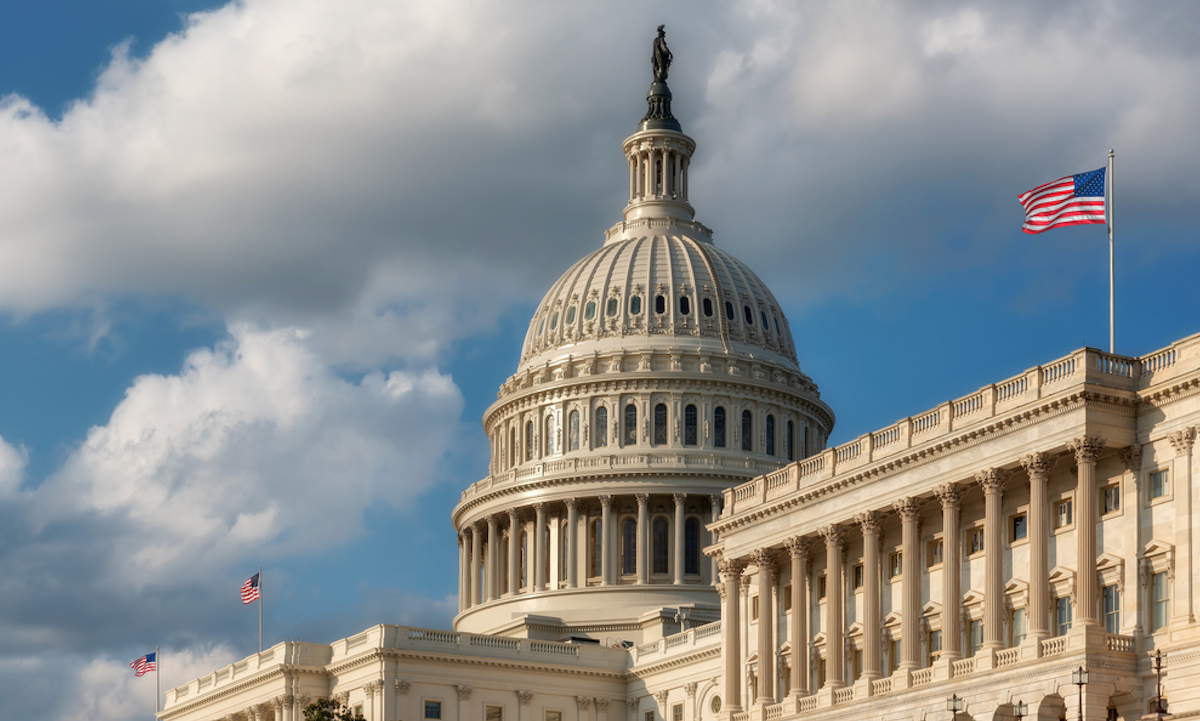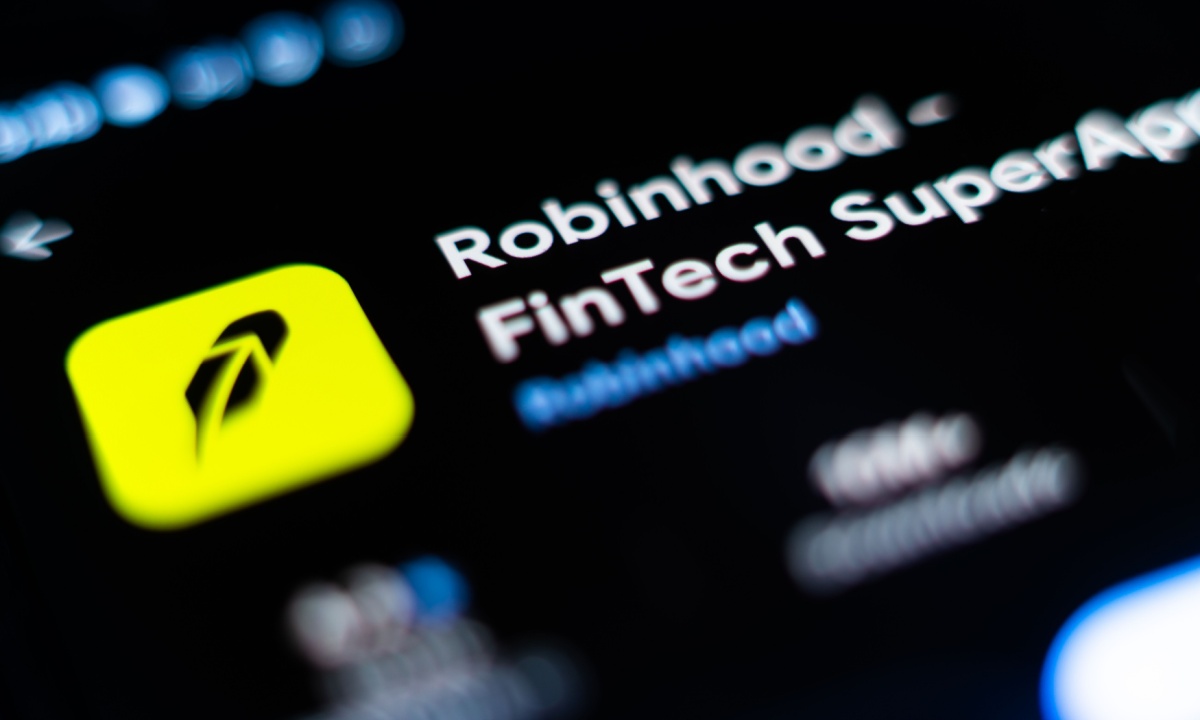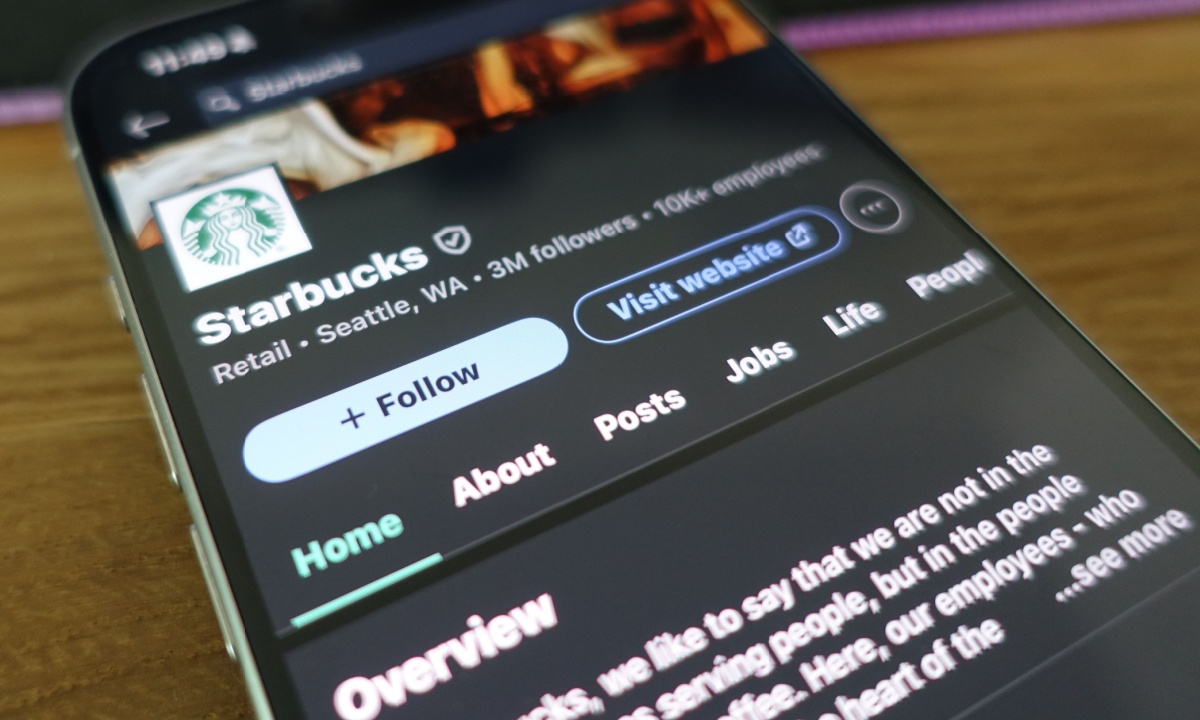Fintech
Senators Release Discussion Draft That ‘Builds on’ House’s CLARITY Act | PYMNTS.com
Published
1 week agoon
By
Hrishi
Four senators outlined their proposed steps for creating digital asset market structure legislation and invited stakeholders to comment on the draft and answer a range of questions about the topic.
The initial discussion draft and the request for information were released Tuesday (July 22) by Sen. Tim Scott of South Carolina, Sen. Cynthia Lummis of Wyoming, Sen. Bill Hagerty of Tennessee and Sen. Bernie Moreno of Ohio, according to a Tuesday press release from the Senate Banking Committee.
The senators’ discussion draft “builds on” the CLARITY Act that was passed by the House last week, according to the release.
“My colleagues and I in the House and Senate share the same goal: to provide clear rules of the road for digital assets that protect investors, foster innovation, and keep the future of digital finance anchored in America,” Scott, who is chairman of the Senate Banking Committee, said in the release.
The committee highlighted several aspects of the discussion draft in the release, noting that it defines “ancillary assets” to clarify which digital assets are not securities, and creates disclosure requirements for offers, sales or distributions of these assets.
The discussion draft also requires the Securities and Exchange Commission to promulgate new rules that exempt certain offers or sales of ancillary assets from SEC registration, define what constitutes an investment contract, and tailor existing securities regulations to consider the unique characteristics of digital assets, according to the release.
It also includes provisions to prevent illicit finance and to promote responsible banking innovation using digital assets or distributed ledger systems, per the release.
The senators’ request for information released Tuesday includes 35 questions covering these and other issues related to digital assets.
The House passed the CLARITY Act Thursday (July 17) along with two other crypto-related bills that were part of the chamber’s Crypto Week initiative.
The CLARITY Act passed on a 294-134 vote and will now be considered by the Senate.
House Financial Services Committee Chairman French Hill of Arkansas said the CLARITY Act “establishes clear rules of the road by creating a functional regulatory framework for digital assets.”
It was reported Thursday that the fate of the CLARITY Act in the Senate remains uncertain because Democrats who had supported the digital assets-focused bill in committee in the House began to back away under pressure from liberal members and party activists.
You may like
Fintech
Robinhood Rides Crypto Surge, Bitstamp Deal to Nearly $1B Revenue | PYMNTS.com
Published
8 hours agoon
July 31, 2025By
Hrishi
Robinhood Markets on Wednesday (July 30) delivered second-quarter 2025 results that reveal a company pivoting sharply from its roots in commission-free retail trading toward a diversified, multilane financial platform.
The company’s Q2 2025 earnings showed a 45% year-over-year revenue surge to $989 million and a doubling of diluted earnings per share to $0.42.
“We delivered strong business results in Q2 driven by relentless product velocity, and we launched tokenization — which I believe is the biggest innovation our industry has seen in the past decade,” said Vlad Tenev, chairman and CEO of Robinhood.
“Q2 was another great quarter as we drove market share gains, closed the acquisition of Bitstamp and remained disciplined on expenses,” added Jason Warnick, CFO of Robinhood. “And Q3 is off to a great start in July, as customers accelerated their net deposits to around $6 billion and leaned in with strong trading across categories.”
The company ended the quarter with $279 billion in platform assets — up 99% year over year — and $13.8 billion in net deposits. Funded accounts reached 26.5 million, a 10% gain, and cash sweep balances rose 56% to $32.7 billion, reflecting deeper wallet share per customer.
Despite the strong earnings, Robinhood’s share price remained relatively flat in after-hours trading, as of reporting.
Read more: Wall Street Moves On-Chain as Tokenization of US Stocks Goes Global
Crypto Expansion Matures
For years, Robinhood’s crypto offering was primarily a retail gateway — an accessible on-ramp for users to dabble in bitcoin, ethereum, and other digital assets. In Q2 2025, however, the company demonstrated its ability to scale its crypto ambitions.
Revenues from crypto-related products climbed 98% year-over-year to $160 million, while total notional crypto trading volumes hit $35 billion.
Much of that surge can be attributed to the June acquisition of Bitstamp, a legacy exchange with deep roots in Europe and over 50 regulatory licenses across major jurisdictions. Notably, $7 billion in Q2 crypto volume came from Bitstamp alone, indicating rapid onboarding of its institutional client base.
With Bitstamp, Robinhood gains more than trading infrastructure — it secures compliance credibility, cross-border licensing, and a level of operational maturity essential for institutional trust. The deal allows Robinhood to fast-track services like crypto staking, which is now available to eligible U.S. users, and stock tokenization, which enables investors in Europe to trade over 200 U.S. equities in tokenized form.
Tenev stressed to investors that the Bitstamp acquisition “instantly globalizes our crypto footprint and bridges us to institutional demand in a way that’s hard to replicate organically.”
At the same time, historically dismissed by financial elites as a gamified millennial platform, Robinhood is making strides to rebrand itself as a serious contender in the institutional arena. The Bitstamp acquisition is only part of that story. The company is also in the process of acquiring WonderFi, a Canadian digital asset platform specializing in decentralized finance (DeFi) tools and tokenized asset services.
Infrastructure and Credibility
Set to close in the second half of 2025, the WonderFi deal is expected to expand Robinhood’s footprint in North America and deepen its capacity to offer programmable finance products.
Internally, Robinhood has begun to lay down institutional-grade infrastructure, including custody solutions, anti-money laundering and know-your-customer processes, and advanced trading engines. With Bitstamp’s regulatory muscle and WonderFi’s technology stack, Robinhood appears poised to rival firms like Coinbase or Galaxy in the lucrative middle ground between traditional finance and crypto-native platforms.
Beyond digital assets, Robinhood’s Q2 also demonstrated growth in core FinTech verticals — specifically those aimed at long-term customer lifetime value rather than one-off trades. Robinhood Gold, the company’s premium subscription offering, reached a record 3.5 million members, up 76% year-over-year. That growth has lifted average revenue per user to $151, a 34% annual increase.
Robinhood Banking, in internal beta, is slated for public rollout later this quarter. The product aims to bring private banking features — such as high-yield savings, estate planning, and net worth tracking — to the mass market.
Still, regulatory headwinds also loom large. Crypto staking and tokenization, two of Robinhood’s most promising innovations, face uncertain regulatory treatment in both the U.S. and Europe. SEC scrutiny of digital asset products, along with evolving interpretations of tokenized securities, could force strategic recalibrations.
“Tokenization will do for stocks what stablecoins did for fiat,” Tenev said.
Fintech
Starbucks Revitalization Initiative to Shift Focus to App and Rewards | PYMNTS.com
Published
1 day agoon
July 30, 2025By
Hrishi
Starbucks plans to enhance its mobile app, its mobile order-and-pay offering, and its rewards program in 2026 as it continues its “Back to Starbucks” plan for revitalizing the coffeehouse brand.
Company executives said this during a Tuesday (July 29) earnings call in which they reported a decline in comparable store sales but pointed to other metrics they said highlight the progress Starbucks is making with its plan.
“This quarter, we’ve made meaningful progress, and we are ahead of our expectations,” Starbucks Chairman and CEO Brian Niccol said during the call. “We’re moving quickly to transform both the business and the culture. We’re testing, learning and focusing on the work that has the biggest impact, fixing the operational foundations of the business and building a platform for innovation in 2026.”
Niccol announced the “Back to Starbucks” plan in October, saying the company aimed to revitalize its U.S. operations and elevate the customer experience by prioritizing coffee quality and ensuring baristas have the support they need to deliver exceptional service.
During the quarter ended June 25, Starbucks saw its global comparable store sales decline 2%, with its North America business down 2% and its international business flat, according to a Tuesday earnings release.
“While our financial results for the quarter don’t yet reflect all the progress we’ve made, I see meaningful signs from across our U.S. business that we’re on the right path,” Niccol said.
For example, Niccol said, Starbucks found that its retail partner engagement scores are up, its coffeehouse leader engagement is near historic highs, and its shift completion is at a record high.
In addition, Niccol said, customer connection scores are up, customer complaints are down, and customer value perceptions are near two-year highs.
In the digital realm, the Starbucks app is highly rated, and the company has one of the largest social media communities in the industry, Niccol said.
“These strengths and signs of progress are why I remain confident in our ability to win,” Niccol said.
In early 2026, Niccol said, Starbucks will launch “significant innovations” in its rewards program that address customer feedback and add new features to grow loyalty, “brand love” and engagement. Niccol added that the rewards program is a “huge asset” for the company, with nearly 34 million 90-day active members.
The company will also launch a new Starbucks app as well as enhancements to its mobile order and pay offering.
“In 2026, we’ll unleash a wave of innovation that fuels growth, elevates customer service and ensures everyone experiences the very best of Starbucks,” Niccols said in an “earnings at a glance” sheet released Tuesday. “We’re building back a better Starbucks experience and a better business.”
Fintech
Trump Administration Considers Crypto for 401(k)s, Mortgage Assets | PYMNTS.com
Published
2 days agoon
July 29, 2025By
Hrishi
The Trump administration is reportedly set to press for the use of digital assets in 401(k) plans and mortgages.
President Donald Trump is expected to issue an executive order that calls for 401(k) plans to open to additional assets that could include cryptocurrencies, CoinDesk reported Monday (July 28).
The administration’s plan for mortgages was announced in a recent order from William Pulte, director of the Federal Housing Finance Agency, per the report. Pulte told mortgage giants Fannie Mae and Freddie Mac to prepare plans to consider a borrower’s crypto holdings as assets backing up their mortgage.
The administration’s plan for additional actions on crypto are set to be published Wednesday (July 30) in a report that was assigned to be created by Trump’s executive order on digital assets policy that was issued in January, per the report.
The report may include details on the bitcoin strategic reserve, crypto tax policies and other matters, according to the CoinDesk report.
The potential expansion of digital assets into 401(k) plans and mortgages is likely to be met with opposition by Democratic lawmakers, per the report.
The report set to be released Wednesday will come from the Presidential Working Group on Digital Assets Markets established by Trump’s Jan. 23 executive order.
That group was created to develop a federal regulatory framework governing digital assets and consider the creation of a strategic national digital assets stockpile.
“The digital asset industry plays a crucial role in innovation and economic development in the United States, as well as our Nation’s international leadership,” the executive order said. “It is therefore the policy of my Administration to support the responsible growth and use of digital assets, blockchain technology, and related technologies across all sectors of the economy.”
When Pulte ordered Fannie Mae and Freddie Mac to consider crypto as an asset for mortgages, he said he did so “after significant studying, and in keeping with President Trump’s vision to make the United States the crypto capital of the world.”
Pulte said the consideration of additional borrower assets in the mortgage risk assessment process “may enable the Enterprises to assess the full spectrum of asset information available for reserves and to facilitate sustainable homeownership to creditworthy borrowers.”
Trending

 Fintech1 week ago
Fintech1 week agoOpenAI and UK Government Partner on AI Infrastructure and Deployment

 Latest Tech News2 weeks ago
Latest Tech News2 weeks agoThe tech that the US Post Office gave us

 Cyber Security1 week ago
Cyber Security1 week agoMicrosoft Fix Targets Attacks on SharePoint Zero-Day – Krebs on Security

 Artificial Intelligence2 weeks ago
Artificial Intelligence2 weeks agoApple loses key AI leader to Meta

 Latest Tech News1 week ago
Latest Tech News1 week agoTrump wanted to break up Nvidia — but then its CEO won him over

 Latest Tech News5 days ago
Latest Tech News5 days agoGPD’s monster Strix Halo handheld requires a battery ‘backpack’ or a 180W charger

 Cyber Security6 days ago
Cyber Security6 days agoPhishers Target Aviation Execs to Scam Customers – Krebs on Security

 Artificial Intelligence1 week ago
Artificial Intelligence1 week agoWhy Apple is playing it slow with AI

















